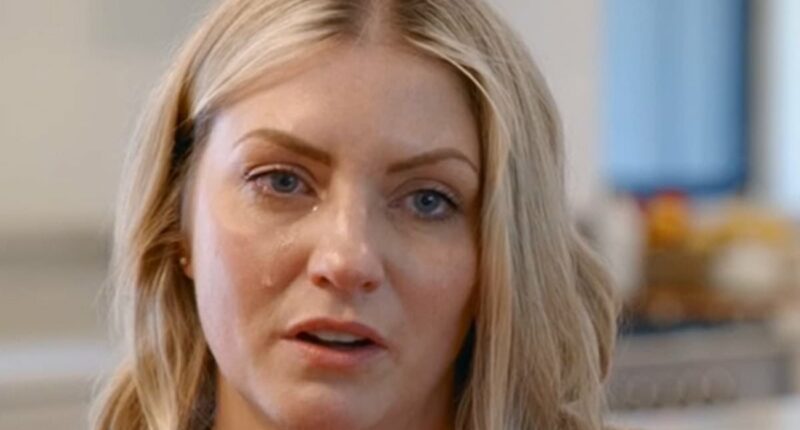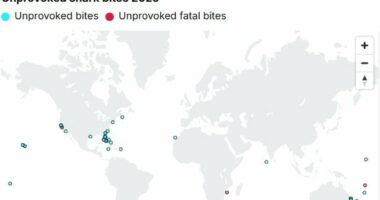Share this @internewscast.com
She has been called ‘Dr Death,’ the ‘High Priestess of euthanasia,’ and dragged through courts for greenlighting controversial assisted suicides.
But Dr Ellen Wiebe – one of Canada’s most prolific providers of state-sanctioned euthanasia – insists she is not evil.
In an exclusive interview with the Daily Mail, a 73-year-old woman from Vancouver disclosed that she has supervised over 400 euthanasia procedures since Canada sanctioned Medical Assistance in Dying (MAiD) in 2016, and she remains an advocate for extending its accessibility to minors and economically disadvantaged individuals.
‘It’s not easy to be depicted as evil, but I’m used to that,’ said Wiebe, who also runs an abortion clinic she founded nearly three decades ago.
‘I’ve been an abortion provider for 50 years. Helping my patients access their rights and giving them good medical care is not evil.’
Canada has the fastest-expanding assisted suicide regime in the world.
More than 15,000 people ended their lives under MAiD in 2023 alone — about one in 20 deaths nationwide.
This number reflects a 16 percent increase compared to 2022, placing Canada ahead of nations like the Netherlands, which has been a forerunner in euthanasia for many years.

Canada’s euthanasia system was rocked by Alicia Duncan’s account of how her mother should not have been greenlighted for an assisted suicide

Dr. Ellen Wiebe is one of Canada’s most prolific advocates of doctor-assisted suicide
The majority of those who choose MAiD are elderly individuals suffering from cancer. However, there is a growing concern over cases involving younger or vulnerable Canadians opting for euthanasia due to non-medical reasons.
A Toronto woman with severe chemical sensitivities chose MAiD partly because she could not secure affordable housing.
A homeless man in St. Catharines applied for an assisted death before campaigners raised enough money online to pay his rent.
An expert panel from Ontario highlighted last year that some individuals were choosing euthanasia because of poverty, isolation, and fears of becoming homeless, rather than because of terminal illness.
Dr Wiebe admits she sometimes feels like a social worker, trying to untangle whether her patients are motivated by illness or destitution.
‘In certain instances, I will inquire: ‘If you had access to better housing and services, would you consider living longer?’ Surprisingly, some respond affirmatively,’ she noted.
She has even lobbied local officials for housing and support, but often finds ‘that service may not simply be available.’
Still, she argues poverty should not invalidate someone’s right to die.
‘Does that mean that person should not have rights? No. They should still have the right to make this decision.’
Perhaps most controversially, Wiebe says Canada will doubtless extend assisted suicide to ‘mature minors’ – teenagers with terminal illnesses.
Currently, Canadian law restricts MAiD to adults over 18, but a parliamentary committee has suggested moving forward like the Netherlands by permitting access for certain children.
‘I’m surprised we haven’t yet had a 17-year-old with terminal cancer insist on their rights,’ said Wiebe.

Donna Duncan (left), 61, from Abbotsford, received MAiD following a minor car accident and a concussion. Her health declined in the months that followed, but the exact cause remained a mystery

Two doctors have to sign on to a patient’s request for an assisted suicide under Canada’s MAiD program

Under Prime Minister Justin Trudeau’s liberal government, Canada repeatedly made it easier to access euthanasia
‘When it happens, a judge will agree — I have no question about that.’
The veteran doctor also backs a further planned expansion to cover patients with severe psychiatric disorders, which could become law as soon as 2027.
Wiebe’s liberal approach to MAiD has repeatedly landed her in hot water.
She has been accused of sneaking into a Jewish nursing home to euthanize a resident against the facility’s rules.
She once performed MAiD on a 52-year-old psychiatric patient while he was on a day pass from a psychiatric hospital.
Last year, a judge temporarily blocked her from euthanizing a woman with bipolar disorder after her partner claimed she was ineligible.
Critics say she pushes the boundaries of the law, with complaints, lawsuits, and headlines following in her wake. None have yet led to professional sanctions.
Still, opponents accuse her of trivializing the seriousness of state-assisted killing, with some pointing to her laughing about the process in past interviews.
The rapid expansion of MAiD has split opinion in Canada.
Supporters, including campaign group Dying With Dignity, say procedures are ‘driven by compassion, an end to suffering and discrimination, and desire for personal autonomy.’
But critics warn that loose safeguards are devaluing the lives of disabled and vulnerable people, and creating pressure on the sick and poor to choose death.
Internationally, assisted suicide or euthanasia is only legal in a handful of countries, including Belgium, Spain, New Zealand, Colombia, and several Australian states.
A growing number of US states permit physician-assisted suicide, where patients self-administer the drugs.
Britain and France are now debating whether to follow Canada’s lead.


More than 99.9 percent of Canada’s assisted suicides are carried out by a doctor
Despite the controversies, Wiebe is unapologetic, and says she expects Canada’s MAiD program to grow further.
‘If every person who is dying had access and knowledge about assisted death, so they could make a truly informed decision, it would be higher than what we have now,’ she said.
The doctor, who uses a wheelchair and is a mother of five, acknowledges she does not know ‘what the best level is’ for the country’s 41 million people.
But she is clear about her role: helping Canadians, however controversial the circumstances, assert what she sees as their ultimate right — the right to die.








